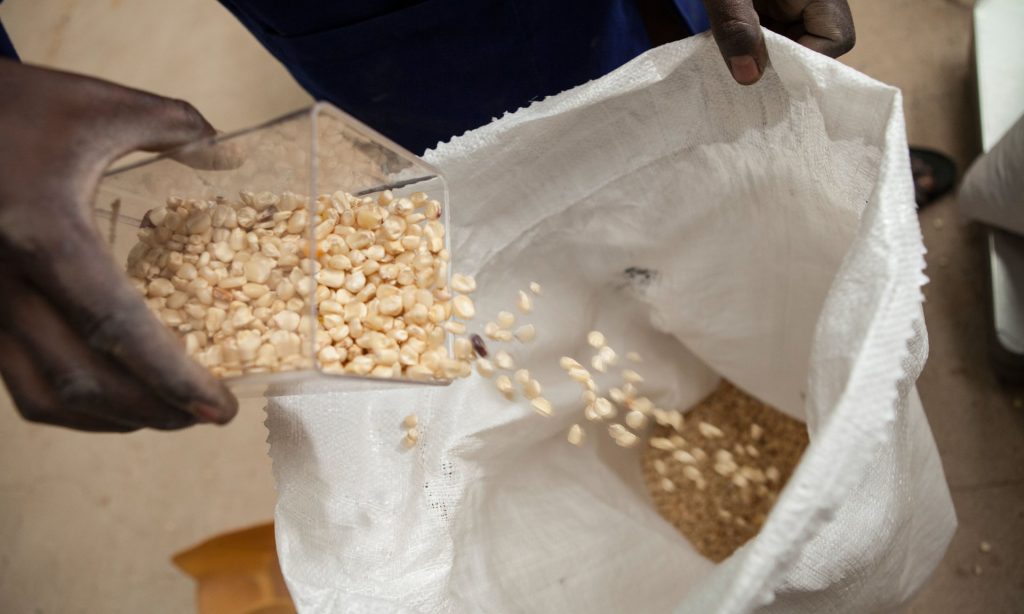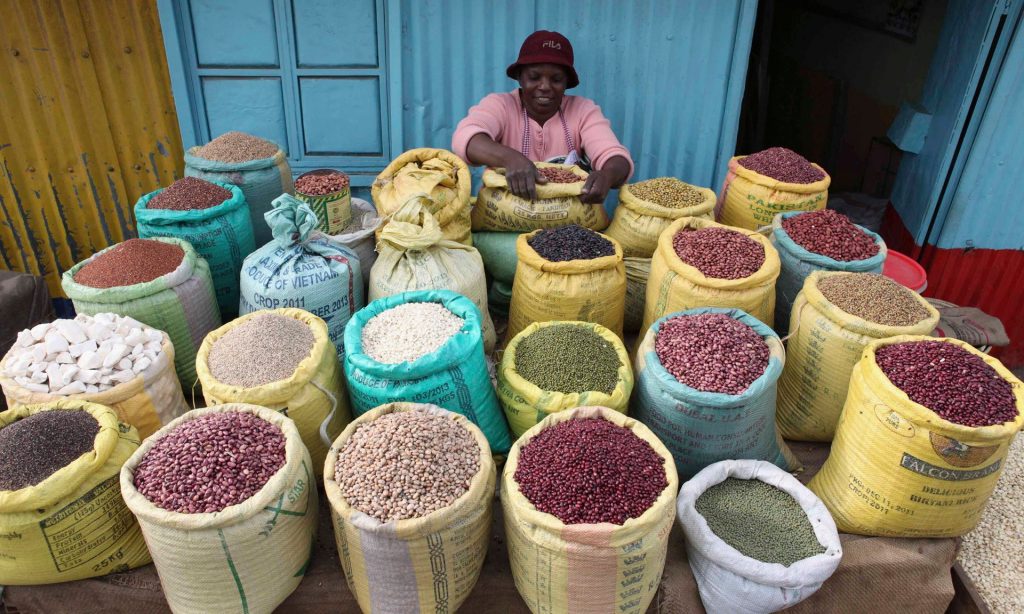
A food trade project to boost the incomes of farmers in Katine and the broader region of Teso in eastern Uganda has resulted in a contract to export up to 500 tonnes of grain to neighbouring Kenya.
Officials at the Katine Joint Farmers Co-operative (Kajofaco) say they have started buying and bulking green grams (similar to mung beans) ahead of export to Kenya following a deal with Smart Logistics, a firm based in the Kenyan capital, Nairobi.
Mary Aleto, the Kajofaco secretary manager, said the arrangement is principally for exporting green grams and soya beans, but two other Kenyan firms – Yuas Commodities and Kamili Partners – have ordered Katine’s maize and groundnuts once the harvest season peaks after September.
These are some of the first fruits of the FoodTrade project announced by the agriculture NGO Farm Africa in March. Backed by a £3m grant from the UK’s Department for International Development, the project seeks to support 70,000 smallholder farmers in Tanzania and eastern Uganda to export grain to Kenya.
In Uganda, the project will benefit about 12,000 farmers in the Teso sub-region. They include 2,000 members of Kajofaco, which was created as a result of the Katine Community Partnerships project, partly funded by Guardian readers. Last year the co-operative started borrowing against a £60,000 deposit fund raised though the Guardian’s 2013 Christmas appeal.
FoodTrade aims to link remote smallholder farmers to high-paying buyers, especially in Kenya.
According to the 2014 national census, nearly 70% of Ugandans – of a population estimated at 39 million – gave farming as their main economic activity. Most are smallholder farmers often frustrated by lack of access to lucrative markets. By bringing farmers together and building their capacity for better-quality produce and marketing, initiatives such as FoodTrade are being watched closely.
Aleto said the deals with the Kenyan firms were struck in April during meetings in Nairobi organised by the East African Grain Council.
“Smart Logistics want green grams and soya beans, and we are already buying green grams,” Aleto said. “The farmers are very excited because it is not easy to get good, ready markets, especially Kenyan markets. Most of the time farmers here end up selling to middlemen at only a fraction of the price out there.”
As a community co-operative, Kajofaco buys grain from its 800 members and other suppliers and tries to sell it at a profit. Aleto said they are still in negotiations with Smart Logistics to determine the price and quantities.
“These people actually want a very high amount, more than we can supply, but we are trying to see how much grain we can raise,” Aleto said.
Supply chain constraints are a common problem for Uganda’s farmers – but they are intertwined with demand challenges. Without a ready market or good storage facilities, undersupply in one season usually drives up the price of a particular commodity. When more farmers produce more of the crop the next season, the oversupply sends prices down. Producers with access to foreign markets, therefore, stand a better chance of getting consistently better prices.

Photograph: Noor Khamis/Reuters
Rose Mutuku, the CEO and founder of Smart Logistics, confirmed her company was interested in Ugandan grain, adding that she has long been buying from Ugandan traders. She said the partners were still hammering out details on “pricing issues”.
“My need is more than 10,000 tonnes of different grains like soya beans, green grams, cowpeas, beans and millet,” Mutuku said. “I would like to work with farmers directly since they have the power to aggregate substantial quantities if they collectively market their grain.”
As David Ogwang, Farm Africa’s representative in eastern Uganda, explained, once farmers are assured of a ready market and a decent price, they will consistently produce more. This will boost household incomes and lift the standards of living in the area.
